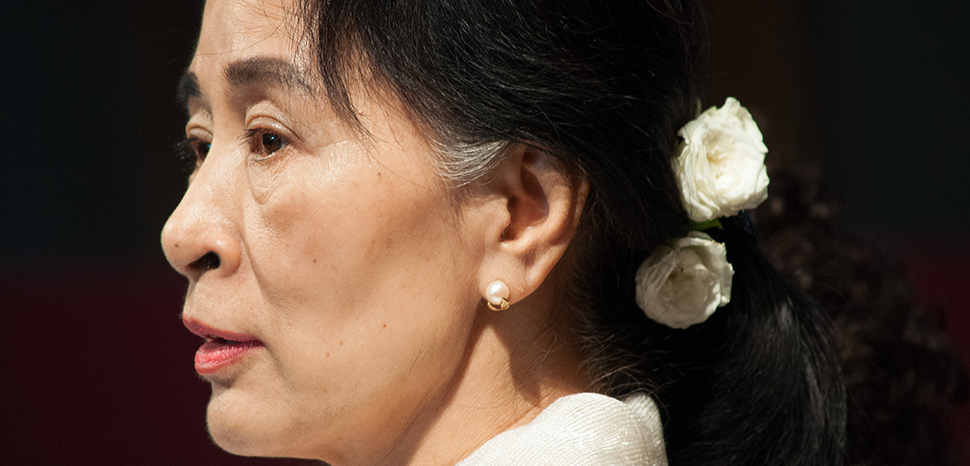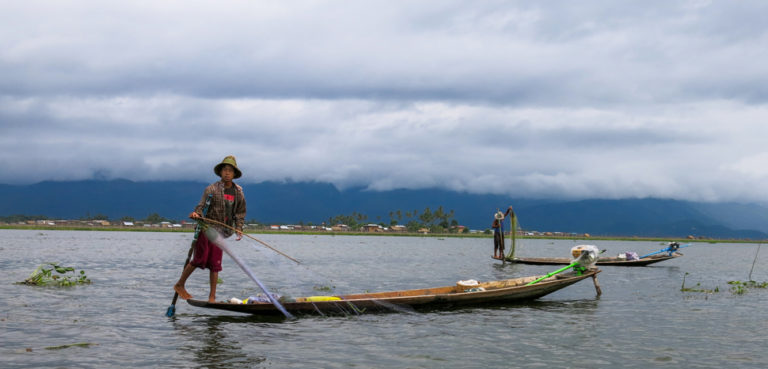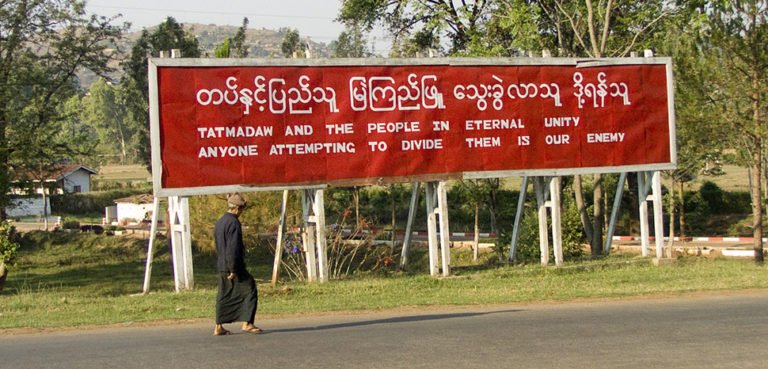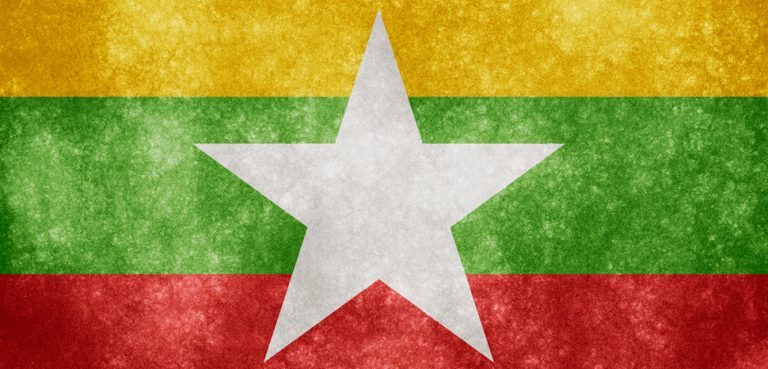Myanmar’s military chief, Min Aung Hlaing, has extended a state of emergency for an additional six months beyond its constitutional limits. This decision has postponed promised elections following the military’s seizure of power from Aung San Suu Kyi’s elected government on February 1, 2021. The country has experienced widespread turmoil since the coup, evolving from mass protests to an armed resistance in response to the military’s violent suppression efforts. The escalation of armed opposition has been particularly notable since the initiation of Operation 1027 by anti-coup forces and ethnic armed groups. Despite facing significant losses in troops, territory, and towns to the opposition, the military has demonstrated a continued capacity for violence, targeting civilian areas with air strikes and artillery and has also vowed to “crush” all opposition to the military regime. The ongoing conflict has displaced over two million people and resulted in the deaths of more than 4,400 individuals, with around 20,000 detained for political reasons.
Amidst significant territorial advances by ethnic armies across various states in Myanmar, Min Aung Hlaing has been vocal about his plans to hold elections and transfer authority to whichever party emerges victorious. His emphasis on election talks, especially after suffering military defeats and engaging with international diplomats, seems aimed at showcasing a commitment to returning to democratic governance. On January 31, the military regime of Myanmar announced a relaxation of the rules for political party registration. The requirement for minimum party membership has been halved from 100,000 to 50,000, and the obligation for parties to be active in at least half of the townships has been reduced to a third. Despite these changes, the military has not specified when elections will occur. Last year, the regime dissolved over 40 political parties, including Aung San Suu Kyi’s National League for Democracy (NLD), for not meeting registration requirements, while Suu Kyi remains imprisoned by the military.
Min Aung Hlaing has been engaging with international representatives, including the special envoy of the Association of Southeast Asian Nations, discussing the regime’s preparations for upcoming elections and affirming the military’s commitment to multi-party democracy. Concurrently, Thein Soe, the junta-appointed chairman of the Union Election Commission, met with the Russian Ambassador to discuss enhancing cooperation between their countries’ election bodies. Last year, delegations from Myanmar visited Russia and China to understand the election processes. Despite these preparations, the legitimacy of these promised elections is under scrutiny due to the extension of the state of emergency.
Along with the talks of holding elections, the Myanmar military regime is proceeding with a controversial census without international support, raising concerns among activists and the international community. Despite earlier reports, the United Nations Population Fund (UNFPA) and the United States Census Bureau have denied assisting with the census, emphasising the importance of transparency and neutrality. The regime plans to be self-reliant, funding the census through the national budget amid a financial crisis, despite lacking the necessary capacity and facing sanctions. The previous census in 2014 cost $74 million with significant foreign funding, and Myanmar only providing $15 million. Additionally, the 2014 census in Myanmar was marked by controversy, particularly around ethnic identity and tensions. The process faced backlash for not allowing the Rohingya minority to self-identify, instead labelling them as Bengali, implying they were illegal immigrants. This decision exacerbated ethnic tensions and led to attacks on international aid organizations in Rakhine.
In the present times, critics fear the census will be used to oppress dissidents, increase surveillance, and legitimize the regime’s control. Even the efforts to conduct a census face significant challenges due to security risks and widespread resistance. In 2014, government schoolteachers and midwives primarily served as enumerators, but given the post-coup resistance movement and the current security situation, these individuals may now be hesitant or unable to participate. The regime might resort to coercion to secure the needed personnel for the census, as indicated by past forced participation in voter list updates. Furthermore, the resistance groups and opposition warn of the risks and potential for increased conflict. Some opposition groups, including the Karenni State council and the Yinmabin People’s Defence Force, have threatened to arrest and imprison enumerators. Activists have also called for public non-compliance with the census. There are therefore challenges surrounding conducting a census in a highly contentious and volatile environment.
The ongoing conflict seems to have compromised the military’s capabilities. Despite having a nominal strength of approximately 325,000 personnel, the actual combat-ready forces are estimated to be only around 100,000. The armed forces are experiencing internal issues, including defections, soldiers surrendering to the opposition, and various corruption scandals. Soldiers have been reported fleeing across borders into India, China, and Bangladesh after being expelled from their positions. There’s also evident distrust among the military’s leadership, highlighted by the frequent replacement of generals in recent times. There is even a noticeable disillusionment among military veterans regarding the ongoing situation and the military’s response to it.
Additionally, the army, which traditionally recruited predominantly from the Bamar ethnic majority and was viewed as the protector of the nation’s sovereignty and unity, is now facing a shift in perception. The younger generation of Bamar is increasingly aligning with the demands of ethnic organizations. This change is impacting the military’s recruitment efforts. Consequently, the military regime has announced plans to implement mandatory military service starting in April for young people and retired security personnel. The law, which will be enforced for the first time since its introduction in 2010, mandates service for men aged 18 to 35 and women aged 18 to 27 for up to two years. This decision has sparked concerns among the population, with some considering leaving the country to avoid conscription.
Amidst this backdrop, the National Unity Government (NUG), which represents the opposition to the military coup including ethnic armies, maintains a hopeful stance towards overcoming the military dictatorship. However, accusations have been levied against some ethnic armies in Myanmar, accusing them of engaging in forced recruitment practices, including drafting child soldiers and utilizing civilians for labor, and some have been criticized for demanding contributions from families who cannot afford to send recruits.
Additionally, the NUG and EAOs are grappling with financial challenges. In an effort to support the resistance movement and social services, the NUG introduced a new taxation policy in territories under its control in February 2022. Despite these efforts, there have been reports from residents and business owners, particularly in the Sagaing Region, of an uptick in checkpoints that hinder their business operations amid an already struggling economy. With the military holding sway over the banking sector, the opposition has turned to creative methods for raising funds, such as issuing bonds, launching an online lottery, and selling stakes in properties owned by the military, with significant contributions reportedly coming from the Myanmar diaspora community. Nonetheless, concerns about the lack of transparency and accusations of embezzlement by local resistance figures, for instance in Kani Township, remain unresolved.
These developments highlight the complex situation in Myanmar and its impact on regional dynamics. Predicting the future of Myanmar in 2024 is fraught with uncertainty. It is likely that the current stalemate and conflict between the military and opposition forces will continue, leading to ongoing humanitarian crises and economic challenges. External support for the National Unity Government (NUG) and ethnic armed groups could escalate the conflict. Dialogue may emerge under internal or external pressures, potentially resulting in partial ceasefires or limited power-sharing. However, achieving a democratic or federal system seems distant. ASEAN might aim for smaller, manageable achievements like prisoner releases, without tackling fundamental political issues. The situation may prompt greater intervention from regional powers like China, Russia, and Thailand, potentially empowering the military. India faces a delicate balance in addressing border security, refugee influx, and maintaining investments, needing to support NUG and ethnic groups while managing relations with the military for regional stability.
Thus, the direction Myanmar will take is contingent on several variables, such as the cohesion within the military, the capacity of the NUG and ethnic groups to resist, the degree of global involvement, and the influence of regional geopolitics. A swift and peaceful resolution or a clear triumph for either side appears improbable shortly. The ongoing power struggle and divergent aspirations for Myanmar’s future are poised to continue influencing the nation’s trajectory in the forthcoming months and years. While a comprehensive settlement in 2024 might not be feasible, incremental progress toward dialogue and better humanitarian conditions could represent significant steps on the protracted journey toward peace and stability in Myanmar.
The views expressed in this article belong to the authors alone and do not necessarily reflect those of Geopoliticalmonitor.com.




